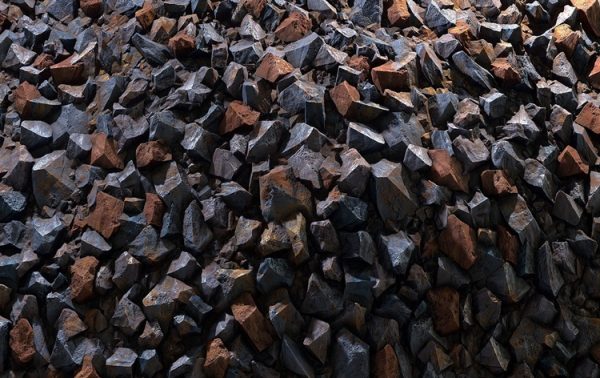Australia expects to log record revenue from iron ore exports this financial year, as global steel-making recovers and the country bounces back from punishing trade sanctions on other exports applied by a hostile China.
A government report showed on Monday that proceeds from iron ore exports should total A$136 billion ($104 billion), making it the country’s most valuable economic export.
The mineral is expected to earn more than A$100 billion per year for the next half decade. Iron ore shipments are expected to rise from 900 million tonnes in 2020–21 to 1.1 billion tonnes by 2025–26.
China remains heavily dependent on Australian iron ore.
The report, by the Department of Industry, indicated gains from the export of copper, lithium and nickel – much prized by tech firms – are expected to offset lower contributions from coal.
Australia has managed to find new markets for its metallurgical coal following China’s crackdown on Australian imports, and which is expected to slice export values to A$23 billion from A$35 billion last year.
‘HEFTY’ SURPLUS
The report forecast LNG export values falling to A$33 billion for the year ending June 30 from A$48 billion last financial year and thermal coal exports worth A$15 billion from A$21 billion.
Gold exports are expected to rise to $A29 billion this year from A$25 billion, and copper exports to rise to A$12 billion from A$10 billion.
“Australia’s trade surplus is likely to remain hefty as goods exports increase in line with increasing imports,” said Rahul Bajoria, economist at Barclays.
China – upset by Australia’s accusations that Beijing attempts to influence domestic politics and at Canberra’s calls for a probe into the origins of Covid-19 – has reduced imports of Australian products from wine, lobsters and barley to coal and copper ore.
Not all Australia’s industries are upbeat about future prospects. Treasury Wine Estates, one of the world’s biggest wine companies, said on Monday it would face an anti-dumping and countervailing duty rate of 175.6% for its Australian country-of-origin wine in China, after an investigation by that country’s Ministry of Commerce.
SUBSIDY ENDS
The Australian economy will also have to do without a pandemic wage subsidy scheme from this week, despite official warnings that up to 150,000 people could lose their jobs as a result.
The JobKeeper scheme, which initially saw A$1,500 a fortnight paid to staff via their employers, was announced last March after Australia imposed a nationwide shutdown that left thousands queuing outside unemployment offices.
Treasurer Josh Frydenberg said the programme had been an “economic lifeline” that has achieved the aim “of saving lives and saving livelihoods” over the past year.
He told reporters in Melbourne there was “no doubt that there will be some businesses that will continue to do it tough” but the subsidies were always designed to be “temporary”.
Australia’s unemployment rate fell to 5.8% in February – down from 7.5% in July 2020 – but the Treasury estimates between 100,000 and 150,000 jobs could be lost as a result of the change.
AsianTimesFinancial
.png)




